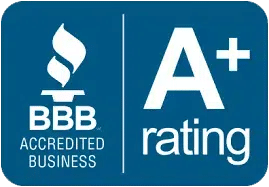Caring for someone with Alzheimer’s disease means staying compassionate, particularly when it comes to communicating. As the illness progresses, communication and information recall is even more difficult. Seniors start to have more problems with completing tasks and getting their needs met. Prompts are a really effective tool that can help family caregivers and Alzheimer’s home care providers support seniors in their daily routines.
How Do Prompts Work?
Prompts are simple cues that help to guide people with Alzheimer’s disease through the tasks and routines that make up their days. These prompts can be verbal, visual, or even tactile. They vary depending on what the Alzheimer’s patient needs and the situation. Prompts keep seniors involved in what’s going on around them, too.
Benefits of Using Prompts
Prompts offer reminders, which helps to reduce anxiety and frustration for seniors with Alzheimer’s disease. Using prompts also helps seniors maintain as much independence as possible for Alzheimer’s patients. Using just the right amount of guidance with each prompt allows seniors to continue to feel in control. It can help sometimes for family caregivers to imagine how they would feel in a situation where things just seemed to keep happening that they don’t understand. Prompts remove a lot of that confusion for Alzheimer’s patients.
Types of Prompts
Verbal prompts involve reminding the senior with Alzheimer’s disease what to do next or what happens next. They might be used to start activities or to remind seniors what steps they might have forgotten. Visual prompts can occur in a few different ways. These might involve labels on items, pictures that show a task in order, or a set of written instructions. Tactile prompts involve physical touch or objects that help seniors know what occurs next.
Using Prompts More Effectively
Alzheimer’s home care providers can help seniors and family caregivers learn how to use prompts more effectively. Starting out with simple prompts is usually best. It’s always possible to make the prompts more complicated if that meets the patient’s needs. Prompts should always be customized to the person who needs them. Reassurance is a key part of prompting, too, because it helps the person with Alzheimer’s disease to feel supported.
Examples of Prompts Families Can Use
Prompts that help seniors feel prepared for what is happening next work really well. When it’s time to get dressed, simply saying, “It’s time to get dressed” can serve as a prompt. Reminding seniors where to find their clothing or offering choices between two outfits can also serve as prompts. Tactile prompts could involve handing the senior a spoon to eat lunch. Another tactile prompt might involve placing their hand on a doorknob after using a verbal prompt that “it’s time to go.” Alzheimer’s care providers can help families to practice using prompts that work for their family member’s needs.
Prompts involve using gentle guidance with seniors who have Alzheimer’s disease and other types of dementia. These gentle cues keep seniors involved in what is happening and reassure them about what’s coming next. Alzheimer’s care providers have experience using these and other strategies to make life easier and safer for aging adults with cognitive illnesses.
If you or an aging loved one are considering Alzheimer’s Home Care in Lincoln, NE, please contact the caring staff at Caretech today at (402) 697-5121
Caretech provides the best care services for seniors and families throughout Nebraska including Omaha, Lincoln, Bellevue, Grand Island, Kearney, Fremont, Norfolk, Hastings, Columbus, Papillon, North Platte, La Vista, Scottsbluff, South Sioux City, Beatrice, Lexington, Chalco, Gretna, Gering, York, and surrounding areas.
- 24-Hour Home Care in Scottsbluff: Trusted Support When You Need It Most - May 29, 2025
- How to Become a Respite Care Provider and Support Families in Need - May 27, 2025
- Services for Older Adults Living at Home - May 23, 2025







